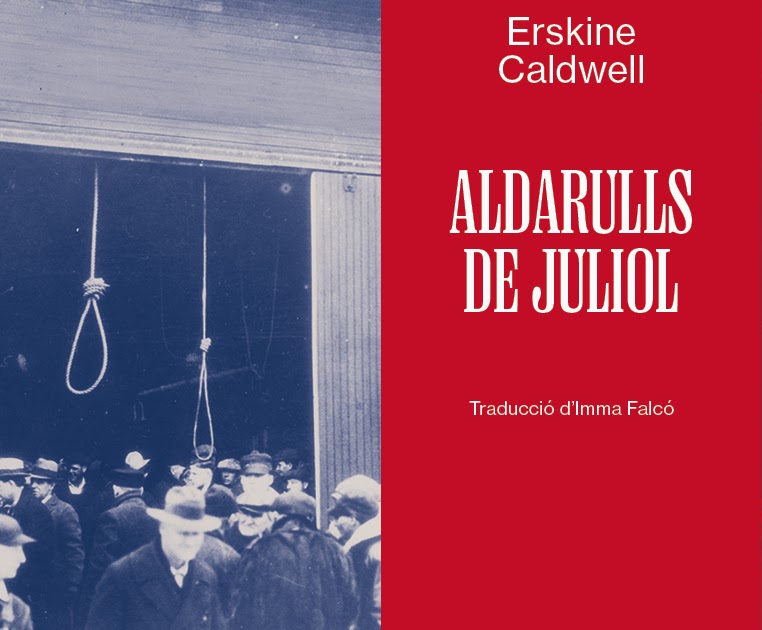
Original language: English
Original title: Trouble in July
Translation: Imma Falcon
Year of publication: 1940
Valuation: Alright
Trouble in Julyby Erskine Caldwell, takes place in the deep south of the United States. It tells how the white community wants to take justice into its own hands when faced with a black man accused of rape. Sheriff McCurtain fears that the matter will affect him politically, since the elections are approaching and he knows that he will lose votes whether he joins in the lynching or arrests the alleged rapist.
Trouble in July is, without a doubt, an American minor classic. Its multiple editions in Spanish (whose title is sometimes Tumult in Julyand others Riot in July) so they attest. I have read it as Riots of Julyits translation into Catalan published by L’Agulla Daurada.
Although I have appreciated Trouble in JulyI would be lying if I said that I didn’t think it could be improved. Caldwell, like the race writer that he is, has the appropriate narrative elements in this novel, but he has not fully expressed either the premise or the characters of it. Likewise, it uses some interesting resources (such as repetitiveness), but it does not integrate them well.
Be that as it may, Caldwell’s forceful criticism of racism in Trouble in July It is fair and accurate. Furthermore, I think it is brilliant how it avoids simplistic demonizations of those who discriminate based on skin color. Most of them are not portrayed as genuinely evil people, but rather portrayed as selfish, prejudiced, ignorant, hypocritical, cowardly, or easily cajoled. Nor are those whose complicit impassivity allows the majority to exercise its violence.
A good example of this would be one of the protagonists of this choral novel, Sheriff McCourtain. His ineffectiveness when it comes to exercising the law is due to his unwillingness to commit himself politically, rather than to a firm will to turn a blind eye to lynchers. Another example would be that of the man who hands the fugitive over to the mob despite believing him innocent, because he fears that the rest will consider him a sympathizer of the blacks.
Despite the success of this message and the way of transmitting it, I have not finished connecting with the global execution of Trouble in July. And I am aware that many of the things I criticize him for were deliberate narrative decisions by Caldwell, and that many readers will defend them as essential to communicate. However, I consider that they could have been done differently, maintaining the quality and effectiveness but making it somewhat less monotonous and repetitive.
Because if this novel is anything, it is monotonous and repetitive. The plot (I insist that I am aware that it is deliberate) gets bogged down at times; the characters and their characterizations go around in circles;
To be clear, I have also appreciated the many virtues of Trouble in JulyI will list some of them:
- The very well articulated message against racism that he sends.
- The respectful and equidistant way in which he approaches his topics without, however, sinning with excessive solemnity or tolerance.
- The verisimilitude of its plot, characters and dialogues, which give the whole a patina of raw realism.
- The cleverness of certain scenes and images.
- Give Sheriff McCourtain a growth arc without granting him redemption or heroic deeds, which would undoubtedly seem gratuitous, out of place and contrary to the message conveyed.
- Its tone, which oscillates masterfully between comedy and tragedy.
- His humor, which appears from time to time in the ironic portrait of the protagonist or in the reverse of one of the situations in which he is involved.
Summing up: Trouble in July It is a novel where prejudice, cruelty and injustice go hand in hand. Although it does not have the most careful prose or the most memorable characters, this minor American classic undoubtedly delivers a narratively effective story and a powerful message.
Source: https://unlibroaldia.blogspot.com/2024/12/erskine-caldwell-tumulto-en-julio.html


